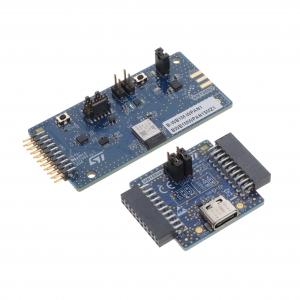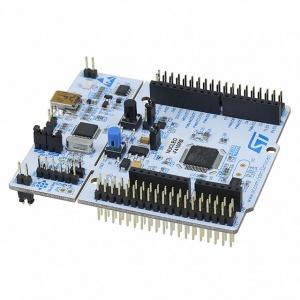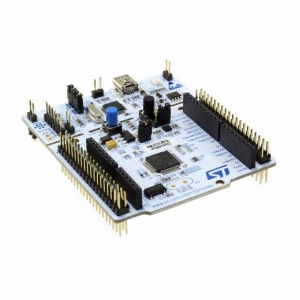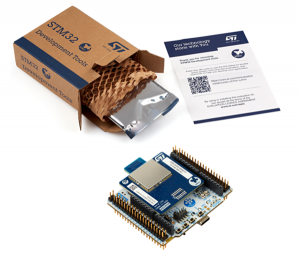برد نوکلئو NUCLEO-WB15CC
STM32 Nucleo-64 development board with STM32WB15CC, supports Arduino, ST Morpho connectivity
برد نوکلئو NUCLEO-WB15CC
Description
The NUCLEO-WB55RG and NUCLEO-WB15CC STM32WB Nucleo-64 boards are Bluetooth® Low Energy (BLE) wireless and ultra-low-power devices embedding a powerful and ultra-low-power radio compliant with the Bluetooth® Low Energy (BLE) SIG specification v5.2.
NUCLEO-WB55RG also offers a radio compliant with IEEE 802.15.4-2011 standard and allows the simple and quick evaluation of STM32WB55xx and STM32WB35xx devices.
The ARDUINO® Uno V3 connectivity support and the ST morpho headers provide an easy means of expanding the functionality of the STM32WB Nucleo open development platform with a wide choice of specialized shields.
All features
-
Common features
- STM32WB55RG (1-Mbyte Flash memory, 256-Kbyte SRAM, in VFQFPN68 package) or STM32WB15CC (320-Kbyte Flash memory, 48-Kbyte SRAM, in VFQFPN48 package) ultra‑low‑power wireless microcontroller featuring:Dual-core 32‑bit (Arm® Cortex®-M4 and dedicated M0+ CPU for real-time radio layer)2.4 GHz RF transceiver supporting Bluetooth® specification v5.2
- Three user LEDs
- One reset and three user push-buttons
- Board connectors:ARDUINO® Uno V3 expansion connectorST morpho extension pin headers for full access to all STM32WB I/Os
- Integrated PCB antenna and SMA connector footprint
- Flexible power-supply options: ST-LINK, USB VBUS, or external sources
- On-board footprint to mount a CR2032 battery socket
- On-board ST-LINK/V2-1 debugger/programmer with USB re-enumeration capability: mass storage, Virtual COM port, and debug port
- Comprehensive free software libraries and examples available with the STM32CubeWB MCU Package
- Support of a wide choice of Integrated Development Environments (IDEs) including IAR Embedded Workbench®, MDK-ARM, STM32CubeIDE, and Mbed Studio
-
Board-specific features (STM32WB55RG only)
- USB user with Micro-B connector
- 2.4 GHz RF transceiver supporting IEEE 802.15.4-2011 PHY and MAC with Zigbee®, Thread®, and proprietary protocols











